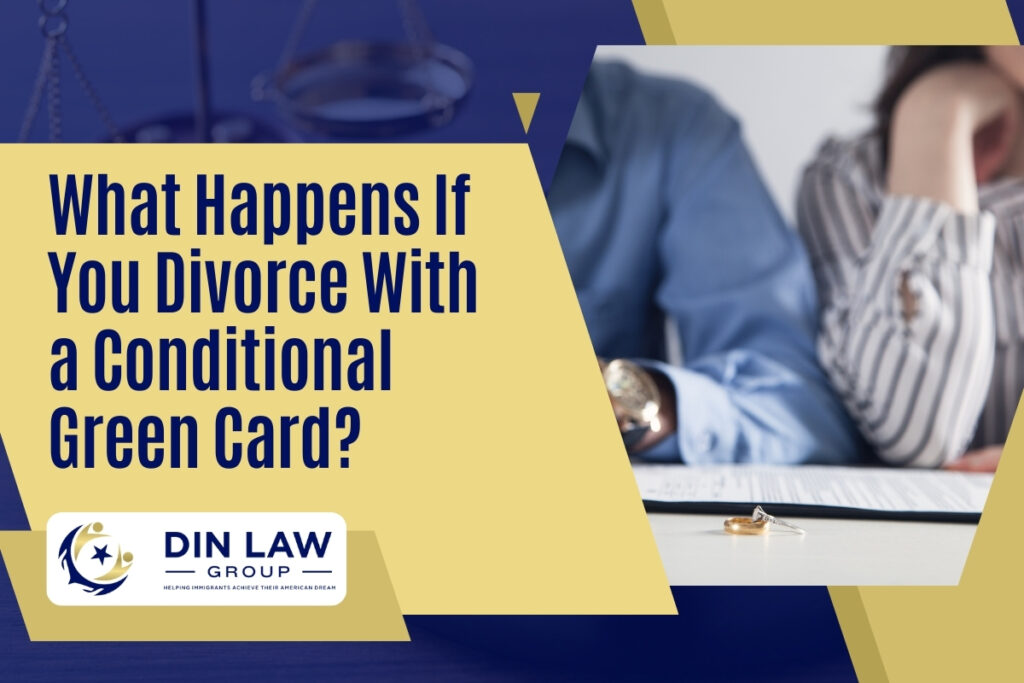
Green Card Divorce: What You Should Know
If you’re like many people, you’re eligible for a green card – that is, lawful permanent residence in the United States – based on your marriage to a U.S. citizen or another lawful permanent resident. But what happens if you divorce?
It depends on where you are in the process. Here’s what you need to know.
How Divorce Affects Your Green Card Status
You don’t get a green card overnight. It’s a process, and that process is particularly important if you’re going through a divorce. What happens next depends on which part of the process you’re in when you split up from your spouse. There are different outcomes possible if you:
- Divorce after you apply but before you actually receive your green card
- Divorce after you receive a conditional green card
- Divorce after you remove the conditions from your green card.
Your green card hinges on whether you are married to the person who makes you eligible for lawful permanent residency, so here’s a closer look at each situation.
Divorce After You Apply for a Green Card
You can apply for your green card when you marry a U.S. citizen or lawful permanent resident. But what happens if you divorce your spouse after you apply, but before U.S. Citizenship and Immigration Services (USCIS) has a chance to review your petition?
Unfortunately, you become ineligible for a green card when you divorce your spouse at this stage. That’s because your green card was based on your marriage to that person – and now that you’re no longer married, you no longer qualify.
There’s another part, too. If your petition has been approved by USCIS but you have not yet received the green card, you lose your eligibility.
FAQ: “What happens if you divorce before the green card interview?”
If you divorce before the green card interview, USCIS will likely deny your application since the basis of your application—your marriage—no longer exists. However, there are certain exceptions. If you believe your case warrants consideration, such as proof of abuse or extreme hardship, you may be able to apply for a waiver under specific conditions. It’s essential to consult with an immigration attorney to understand your options and any potential pathways forward.
Conditional Green Card Divorce
When you marry your spouse, you initially apply for a conditional green card, which depends on the continuation of your marriage. If a conditional green card divorce occurs during this time, you could lose your eligibility for lawful permanent residency. In fact, if you divorce after receiving your conditional green card, you’ll need to file Form I-751 with a waiver for the joint filing requirement.
Form I-751 typically requires your spouse to file with you, so that’s where the waiver comes in. Your attorney can give you case-specific advice if you divorce your spouse at this point. He or she will be able to file the form with a waiver for the joint filing requirement, but you must demonstrate to USCIS that your marriage was entered into with genuine intent.

Only some people can file for a waiver (including those who have divorced), and there’s no guarantee that USCIS will approve it.
It can be pretty tough to prove that you entered your marriage in good faith if you divorce before the conditions are removed from your green card, but it is possible. For most people, the best course of action is to work with a green card law firm that can give you advice throughout the process.
Divorce After Green Card
FAQ: “Can I divorce after getting a 10-year green card?”
If you have removed the conditions from your green card by the time you divorce, your split typically won’t affect your lawful permanent resident status. You can even change your name on your green card after your divorce; you’ll simply have to show proof of your divorce (such as your divorce decree).
However, it is important to note that if you apply for U.S. citizenship, USCIS may review your entire immigration history, including the circumstances of your divorce. This is particularly significant if your green card was initially obtained through marriage.
To avoid complications, ensure all provided information throughout your application process has been accurate and truthful. Consider consulting with an immigration attorney if you have concerns about how your divorce may impact future immigration processes.
Schedule an Immigration Lawyer Consultation About Green Card Divorce
If you need to speak with an attorney about divorce after getting a green card, we’re here to help. Call us to schedule your free consultation with an experienced, knowledgeable and compassionate immigration attorney now.
